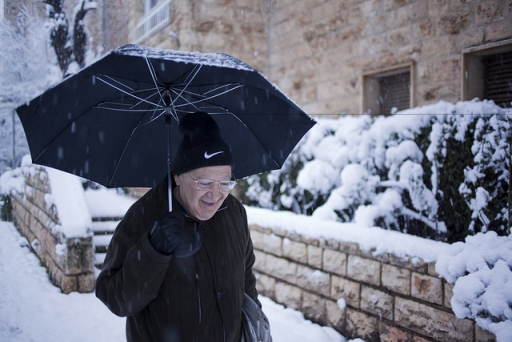Winter is approaching, and while for many that means cozy evenings indoors, hot chocolate, and fun snowball fights, for seniors, it means the need to be properly prepared. What younger people take for granted in the winter – staying safe and warm – seniors need to take extra precautions in order to achieve.
5 Things Seniors Should Watch Out For in the Winter
Hypothermia – According to the Centers for Disease Control and Prevention, men and women over age 65 are more likely to develop hypothermia, which can be fatal.
To avoid hypothermia, seniors should make sure to dress warmly (layering is a good way to do this), to avoid being in wet clothing and to stay indoors if the weather is really freezing outside.
Frostbite – Frostbite is when body tissue freezes, resulting in constricting blood vessels and loss of sensation. Seniors are particularly susceptible to frostbite because circulation tends to deteriorate with age. If frostbite is caught early and treated, the damage can usually be reversed. But if frostbite gets to advanced stages, blood vessels, muscles, nerves etc. may be permanently damaged.
To avoid frostbite, seniors should make sure all parts of their body, especially extremities, are covered up when they go out. This means wearing hats, gloves, earmuffs – evening doubling up on socks.
Slipping – Rain, snow and ice turn sidewalks into dangerous ground for seniors. For younger folks, it’s not a big deal to avoid and falls generally aren’t as serious when they do occur, but for seniors, slipping can be a terrible mishap. Breaking any bone, especially a hip, can drastically change a senior’s life for the worse, since recovery is painful and takes longer the older you are.
To avoid slipping, seniors should make sure their sidewalks are shoveled by a teenager who can be paid a few bucks or by a family member. In addition, they should use walking sticks for extra support – some canes even come with special attachments that add extra grip. Buying a pair of boots or shoes with good traction is also a good investment.
Driving – Precipitation not only makes walking more difficult, but driving as well. If seniors venture out in their cars, they should make sure that everything is in order: The antifreeze, tires, windshield wipers, etc.
To stay safe, seniors should ALWAYS have a cell phone on them whether they are driving or walking, and they should also make sure they have emergency supplies in their cars. Supplies include a first-aid kit, blankets, extra clothes, booster cables, a windshield scraper, salt, sand or cat litter to help with stuck tires, water, and a flashlight.
Depression – Staying indoors more and having less social contact during the winter can sometimes lead to full-blown depression or SAD, Seasonal Affective Disorder.
To avoid winter blues, family members should make sure to give the beloved seniors in their lives a little extra attention during these cold months – an extra visit or even phone call can make a big difference. Seniors should also be encouraged to make “telephone dates” with their friends or to take advantage of the rare sunny days and head outdoors. Of course, Chicago home health providers can serve this role very nicely. Just call Abcor to find out more!
What About Heating?
Heating is expensive. But for seniors, it’s also a necessity. After all, staying warm is an important part of staying healthy. Here are some good tips for heating homes without wasting money on electricity. Remember, even though heating may be expensive, medical bills are more expensive – and much riskier as well.
